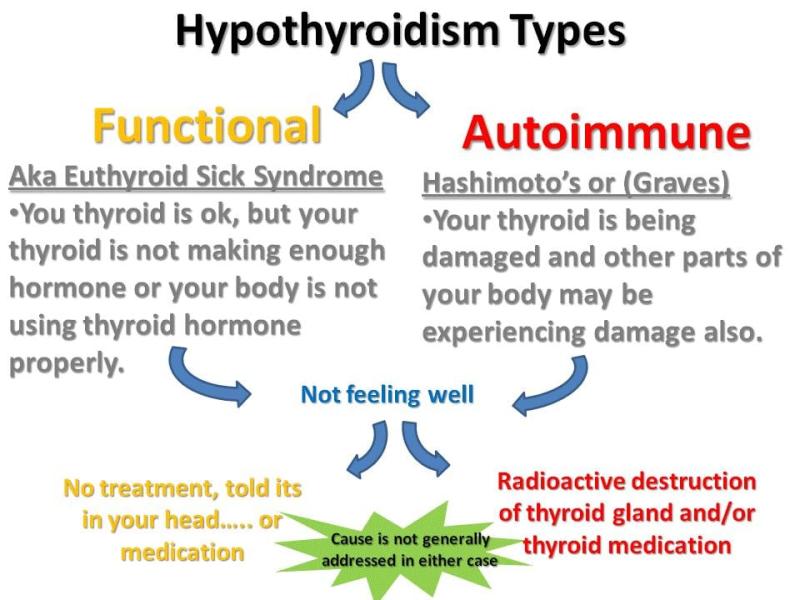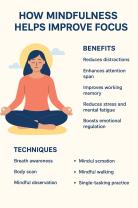What are the problems with hypothyroidism?
Hypothyroidism is a medical condition characterized by an underactive thyroid gland, which doesn't produce enough thyroid hormones. Thyroid hormones play a crucial role in regulating various bodily functions, and when their levels are insufficient, it can lead to a range of health problems and complications. Some of the problems associated with hypothyroidism include:
Fatigue: Fatigue and low energy levels are common symptoms of hypothyroidism. The body's metabolic rate is slowed down, leading to a lack of energy.
Weight Gain: Hypothyroidism can cause unexplained weight gain or difficulty in losing weight. This is often related to the slowdown of metabolism.
Cold Sensitivity: Individuals with hypothyroidism may feel excessively sensitive to cold temperatures.
Hair and Skin Changes: Dry, coarse skin and hair, as well as hair loss, are common symptoms of hypothyroidism.
Constipation: Sluggish bowel movements and constipation are often reported by people with hypothyroidism.
Muscle Weakness and Aches: Muscle weakness and aches, as well as joint pain, can be experienced.
Mood Changes: Hypothyroidism is associated with mood changes, including depression, irritability, and difficulty concentrating.
Menstrual Irregularities: Women with hypothyroidism may experience irregular menstrual cycles and heavy menstrual bleeding.
Infertility: Hypothyroidism can affect fertility in both men and women. It may lead to difficulty in conceiving or maintaining a pregnancy.
High Cholesterol: Hypothyroidism can lead to elevated levels of cholesterol in the blood, increasing the risk of heart disease.
Cardiovascular Issues: Hypothyroidism is associated with a higher risk of heart-related problems, including high blood pressure, heart disease, and an increased risk of heart attack.
Cognitive Impairment: Some individuals with hypothyroidism may experience cognitive difficulties, such as memory problems and reduced mental sharpness.
Swelling: Swelling, particularly in the face and extremities, can occur due to fluid retention.
Myxedema: In severe cases, untreated hypothyroidism can lead to a life-threatening condition called myxedema, characterized by extreme fatigue, low body temperature, and mental confusion.
Goiter: In some cases, an enlarged thyroid gland (goiter) may be present as the body tries to compensate for the lack of thyroid hormones.
Neuropathy: Prolonged hypothyroidism can lead to peripheral neuropathy, causing numbness and tingling in the extremities.
It's essential to recognize the symptoms of hypothyroidism and seek medical attention for diagnosis and treatment. Hypothyroidism is typically managed with synthetic thyroid hormone replacement therapy, which can help alleviate many of the symptoms and improve overall health. Regular follow-up with a healthcare provider is necessary to ensure that thyroid hormone levels are properly balanced and that any associated health problems are addressed.
Hypothyroidism, also known as an underactive thyroid gland, is a common disorder that affects millions of people worldwide. It occurs when the thyroid gland doesn't produce enough thyroid hormones, which play a vital role in regulating metabolism, energy levels, and overall health.
- Common Problems and Health Issues Associated with Hypothyroidism
Hypothyroidism can manifest a wide range of symptoms and health problems, including:
Fatigue and low energy: Thyroid hormones are essential for energy production, so a lack of these hormones can lead to chronic fatigue and persistent tiredness.
Weight gain: Hypothyroidism can slow down metabolism, making it easier to gain weight and harder to lose it.
Intolerance to cold: Hypothyroidism can affect the body's ability to regulate temperature, making individuals more sensitive to cold.
Dry skin and hair: Thyroid hormones also play a role in maintaining skin and hair health. Hypothyroidism can lead to dry, brittle hair and rough, flaky skin.
Muscle weakness and aches: Hypothyroidism can affect muscle function, leading to muscle weakness, aches, and stiffness.
Irregular or heavy menstrual periods: Hypothyroidism can disrupt menstrual cycles, causing irregular periods or heavier bleeding than usual.
Difficulty concentrating and memory problems: Hypothyroidism can affect cognitive function, leading to difficulties with concentration, memory, and focus.
Depression and mood swings: Hypothyroidism can contribute to symptoms of depression, sadness, and mood swings.
- Effects of Hypothyroidism on Metabolism and Overall Well-being
Thyroid hormones play a crucial role in regulating metabolism, the process by which the body converts food into energy. When thyroid hormone production is low, metabolism slows down, leading to a range of physical and mental health problems.
Metabolic slowdown: Hypothyroidism reduces the body's ability to burn calories, making it easier to gain weight and harder to lose it.
Reduced energy production: The lack of thyroid hormones diminishes the body's energy production, leading to chronic fatigue and low energy levels.
Impaired cardiovascular function: Hypothyroidism can affect heart rate and blood pressure, increasing the risk of cardiovascular problems.
Digestive issues: Hypothyroidism can slow down digestion, causing constipation and other digestive problems.
Reduced bone density: Hypothyroidism can increase the risk of osteoporosis by affecting bone metabolism and calcium absorption.
- Potential Complications of Untreated or Severe Hypothyroidism
Untreated or severe hypothyroidism can lead to serious health complications, including:
Goiter: An enlarged thyroid gland, known as a goiter, can cause difficulty swallowing and breathing.
Myxedema coma: A rare but life-threatening condition that can occur in severe hypothyroidism, characterized by extreme lethargy, hypothermia, and low breathing.
Infertility: Hypothyroidism can affect reproductive function, leading to infertility problems in both men and women.
Heart failure: Severe hypothyroidism can increase the risk of heart failure due to impaired heart function.
Mental health problems: Untreated hypothyroidism can exacerbate existing mental health conditions like depression and anxiety.
If you experience any of the symptoms of hypothyroidism, it's important to consult a doctor for proper diagnosis and treatment. Early diagnosis and management of hypothyroidism can effectively prevent or minimize complications and improve overall health and well-being.










